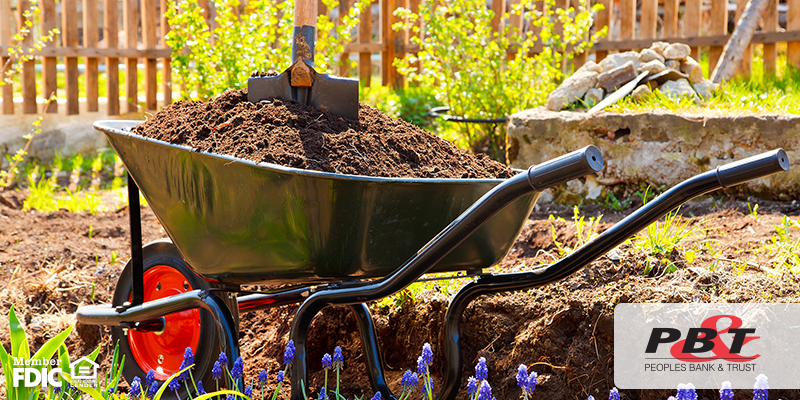
So you’ve either gotten, or are about to receive, your long awaited refund. There’s quite a buzz of excitement as many Americans decide what types of things they are going to buy with their extra cash. But if you are looking to do something different with your money this year, we have come up with some great ways for you to not spend away your money, but to get the very most out of it!
- Establish a Savings Account
We’re sure you’re not surprised with us telling you this, but pay yourself first! You have just given the government an interest-free loan, so immediately taking that back and putting it in a high interest savings account is a great option!
- Keep Your Eye on the Prize: Retirement
Another wise move to make with this return is to invest the entire amount towards your future. If you get in the habit of doing this every year, think how large this amount can accumulate over time. Contact Peoples Bank & Trust to get an IRA started now.
- Grow your 9-1-1
You never know when a disaster can take a blow to your savings account, snowballing you into debt you didn’t plan for to cover emergency expenses like illness or car problems. Adding some extra cushion to your life is a way to keep you on top of your game.
- Grow Your Potential
This might be just the money motivation you needed to amp up your education! Get certified in a specialty area of your field, or attend a conference to network with other professionals. Many people don’t go back to school because of the costs, but this seed money could potentially help you to earn more in the future.
- Update Your Home
If you are looking to put your house on the market soon, a great investment would be to improve an area of your home that would give you a good return on your investment. Maybe this is updating the kitchen sink or redoing the bathroom floor. You may make your money back and then some if you do it yourself!
- Pay Down Your Debt
If you have gotten yourself in a bad spot when it comes to high interest debts, now might be the time to start paying those down. Getting those out of the way can make more room for savings and investments.
- Invest in Your Emotional Health
Maybe it’s been a rough year for you, and you just need to getaway. Getting the most out of your return for you may be to take a vacation. You might want to just have the chance to restore and recalibrate your dreams and goals. Creating memories will last for years to come, and may be what you need in order to move forward this next year.
Peoples Bank & Trust Co.
Member FDIC
Equal Housing Lender




